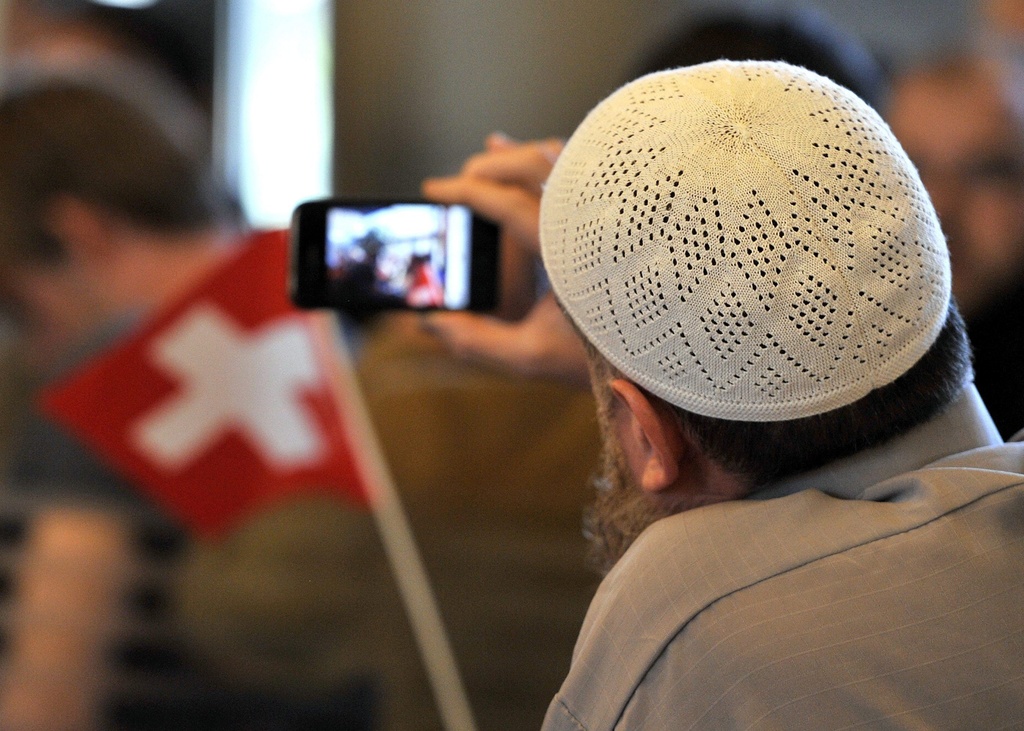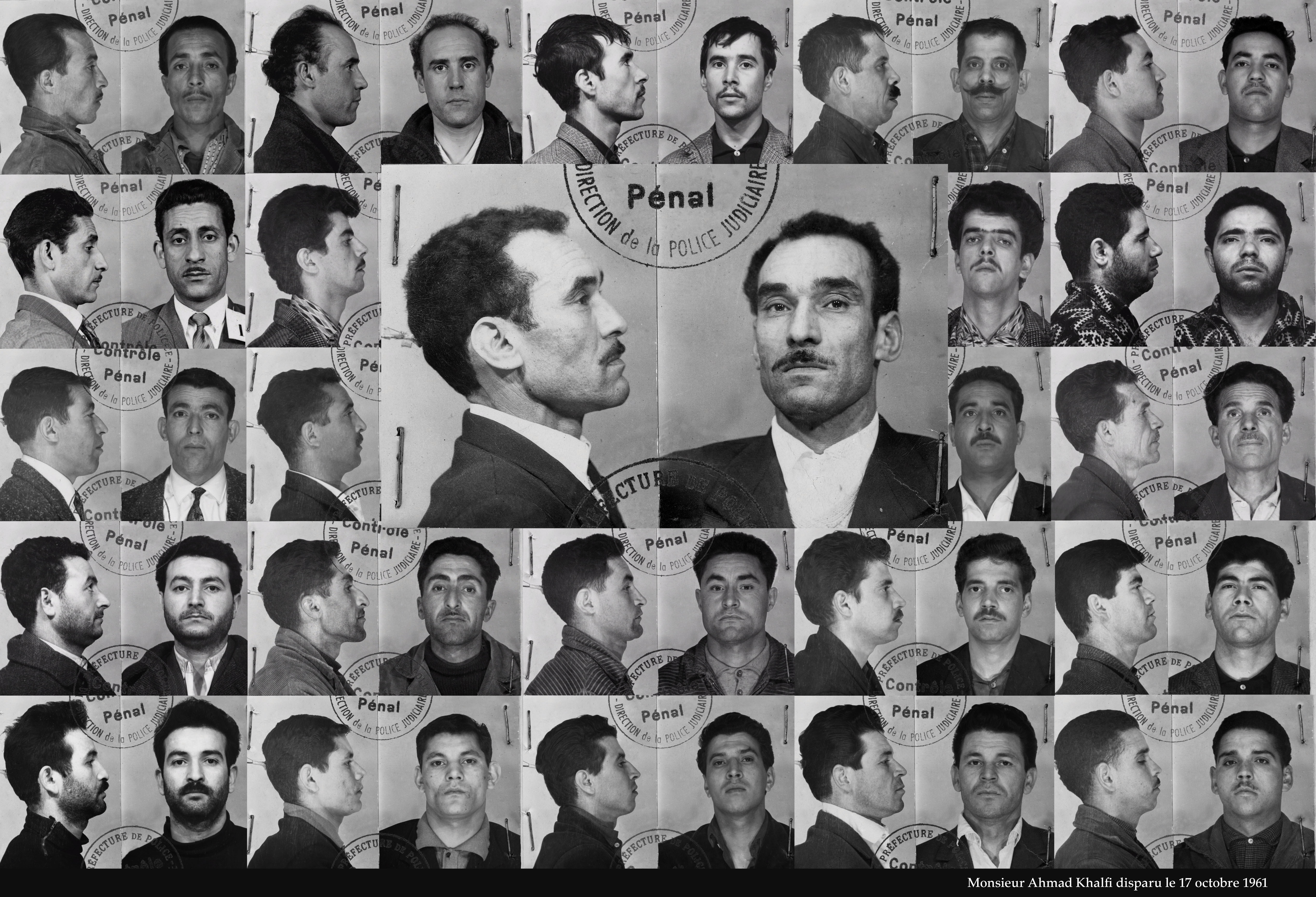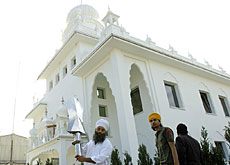Muslims in Switzerland “lack legal protection”

Muslims in Switzerland face discrimination, while the country allows legislative gaps on racism to remain open, an Amnesty International report has claimed.
The report, entitled Choice and Prejudice, also looked at the problem of discrimination against Muslims in Belgium, France, the Netherlands and Spain.
It concluded that visible symbols of this religious group, including headscarves, beards and minarets, were often viewed with hostility and that Muslims experienced discrimination in employment, education and other areas.
“Discrimination against Muslims in Europe is fuelled by stereotyped and negative views, which fail to take into account basic demographic and sociological factors such as the diversity of Muslim groups as well as their cultural and religious practices across the region,” it stated.
The President of the Swiss Federal Commission on Racism, Martine Brunschwig Graf, welcomed the report, adding that the commission had already put forward solutions to cover the gaps in anti-discrimination legislation.
Legal hurdle
Switzerland’s main failing towards its Muslim population, according to Amnesty, is the lack of comprehensive legislation covering racism and discrimination.
The report concluded that Switzerland had not implemented recommendations from human rights treaty bodies relating to legislation, including those of the UN Committee on Economic, Social and Cultural Rights in 2010.
While the Swiss constitution does enshrine the principle of equality and the prohibition of discrimination on several grounds – including race and religious beliefs – this does not translate into adequate protection within society, the report argued.
Swiss civil legislation does not recognise the sharing of the burden of the proof in cases of discrimination, except on the grounds of gender. This has proved to be a significant hurdle to initiating legal proceedings, the report said.
Brunschwig Graf echoed Amnesty’s call for shared burden of proof and the need for an equality body to monitor domestic anti-discrimination legislation.
Data gap
While commending the role of the commission in monitoring discrimination, the Amnesty report was critical of the lack of available data in Switzerland which led to policy decisions being made based on insufficient information.
“Indeed it is not clear on what grounds the Swiss government bases its claims that stronger legislation is not necessary,” it stated.
Brunschwig Graf pointed to the federalist cantonal system which creates difficulties in gathering centralised information.
“That is the problem with statistics in Switzerland in general but we are working towards more coordination between the cantons. We are just at the beginning. It’s important to be completely transparent to restore confidence,” she told swissinfo.ch.
On the issue of freedom to worship, the human rights group expressed concern about “the discriminatory provision prohibiting the building of minarets in Switzerland”. Swiss voters accepted a proposed ban on the construction of minarets in a 2009 referendum.
“States should ensure that the right to have adequate places of worship, which is a key component of the right to freedom of religion or belief, is fulfilled,” the report said.
Dress code
Swiss employers also came under criticism in the report with regard to dress codes. Amnesty found that some companies restricted the wearing of religious and cultural symbols and dress.
The country’s two largest supermarket chains, Migros and Coop, were mentioned in the report as applying uniform policies for employees in contact with the public – which effectively excluded the possibly of them wearing Muslim headscarves.
“Company policies that restrict the display of religious and cultural symbols in order to promote a specific corporate image … are not based on a reasonable and objective justification and are therefore discriminatory,” the report said.
“Such policies also violate the rights to freedom of expression of Muslims and other religious minorities,” it added.
In response to the criticism, Coop told swissinfo.ch that all its in-store employees were expected to wear a uniform which did not include a headscarf. This requirement does not apply to back office or production staff.
“Our personnel advisors pro-actively discuss the headscarf issue when they come across a job applicant wearing a headscarf and we make them aware of our rules. We do however take the trouble to find a good solution with those affected,” Coop added.
Field research for the report was conducted throughout 2011. Amnesty International representatives spent an average of ten days in each country and carried out more than 200 interviews.
The Federal Commission against Racism was created in 1995 by the Swiss government with the aim of implementing the International Convention on the Elimination of All Forms of Racial Discrimination (CERD).
The commission provides advice to public authorities in all matters relating to racism, raises awareness, undertakes research, carries out monitoring activities and provides support to persons subjected to racism.
Although the commission cannot bring cases to court, its mandate is broad and it focuses on several forms of racism, including racism affecting Muslims.
There are between 350,000 and 400,000 Muslims living in Switzerland.
Around 12% are Swiss citizens.
The size of the Muslim community has grown from 2.2% in 1990 to 4.3% in 2000.
Most Muslim immigrants came from the former Yugoslavia and Turkey. But the community includes up to 100 nationalities.
The number of Muslims doubled between the censuses of 1990 and 2000, largely because of an influx of refugees and asylum seekers, including from the war in the former Yugoslavia.
Three-quarters of the Swiss population is Christian: 42% Catholics, 35% Protestants and 2.2% other Christian faiths.

In compliance with the JTI standards
More: SWI swissinfo.ch certified by the Journalism Trust Initiative







You can find an overview of ongoing debates with our journalists here. Please join us!
If you want to start a conversation about a topic raised in this article or want to report factual errors, email us at english@swissinfo.ch.